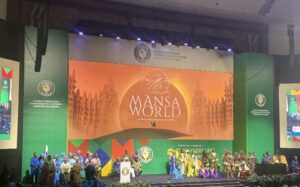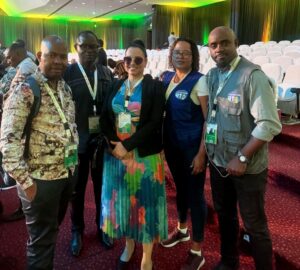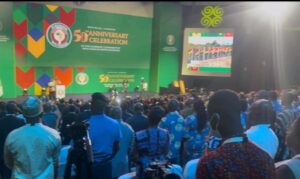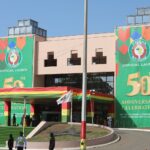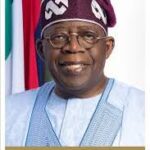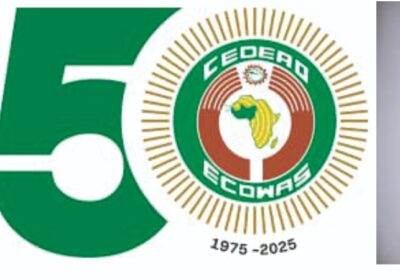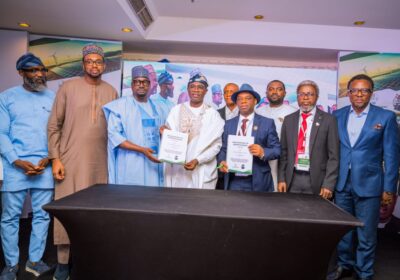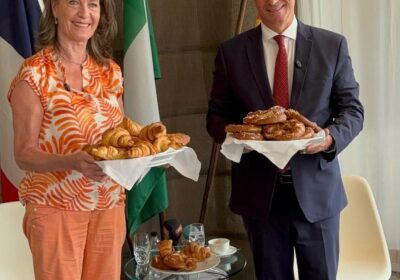ECOWAS Marks 50 Years of Golden Jubilee of Unity, Challenges, and a Renewed Enactment of Regional Integration By Raymond Enoch
As the Economic Community of West African States (ECOWAS) celebrates its Golden Jubilee, the organization reflects on its past achievements and the path forward, reaffirming its commitment to fostering unity, peace, and prosperity across the West African region.
Founded on May 28, 1975, through the Treaty of Lagos, ECOWAS was designed as a platform for economic integration, peace, and security. Over the past five decades, the bloc has played a vital role in promoting regional cooperation, advancing trade, and addressing security challenges, while strengthening its position as a critical regional actor.
The launch of ECOWAS’s 50th-anniversary celebrations in Accra was a grand display of African culture, with performances by the Ghana Armed Forces Central Band and a choreopoem by Chief of the Moment. Dr. Omar Alieu Touray, the President of the ECOWAS Commission, delivered a powerful keynote address, underscoring the organization’s growth and ongoing commitment to its founding ideals.
Dr. Touray highlighted the importance of this anniversary in shaping the future of West Africa. “As we celebrate 50 years of collective progress, we must remain steadfast in our commitment to unity and integration,” he stated. He emphasized that ECOWAS’s vision for regional cooperation, though faced with challenges, remains rooted in the belief that only through togetherness can the region achieve sustainable peace and prosperity.
However, ECOWAS is not without its struggles. The recent departures of Mali, Niger, and Burkina Faso from the bloc, following tensions over responses to coups and security issues, have cast a shadow on the organization’s unity. The three countries formed the Alliance of Sahel States, expressing discontent with ECOWAS’s approach to the region’s governance crises.
In response, Dr. Touray stressed the importance of dialogue and the organization’s openness to reintegration. “While we acknowledge the challenges, we remain committed to building bridges rather than walls. The unity of West Africa is more critical than ever as we face common threats, including terrorism and economic instability,” he remarked.
The Golden Jubilee celebrations also brought to light renewed calls for reform within ECOWAS. Civil society organizations have urged the organization to improve its responsiveness to citizens’ needs and to maintain a focus on democratic governance. Dr. Touray noted that ECOWAS must evolve to ensure its legitimacy and credibility in the eyes of West Africans. He committed to enhancing the organization’s role as a guarantor of stability and good governance in the region.
Looking ahead, ECOWAS continues to prioritize regional economic integration, with initiatives like the ECOWAS Trade Liberalization Scheme (ETLS) and efforts to streamline electoral processes and uphold human rights at the forefront of its agenda.
The 50th anniversary marks not only a time to celebrate the organization’s past successes but also a call to action for the future. Dr. Touray concluded, “This Golden Jubilee is not merely a reflection of our journey so far, but a renewed pledge to create a stronger, more integrated West Africa, where peace, prosperity, and opportunity abound for all.”
As ECOWAS steps into its next 50 years, its unwavering commitment to regional unity and integration stands as the cornerstone of a brighter future for West Africa.



